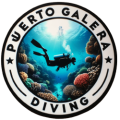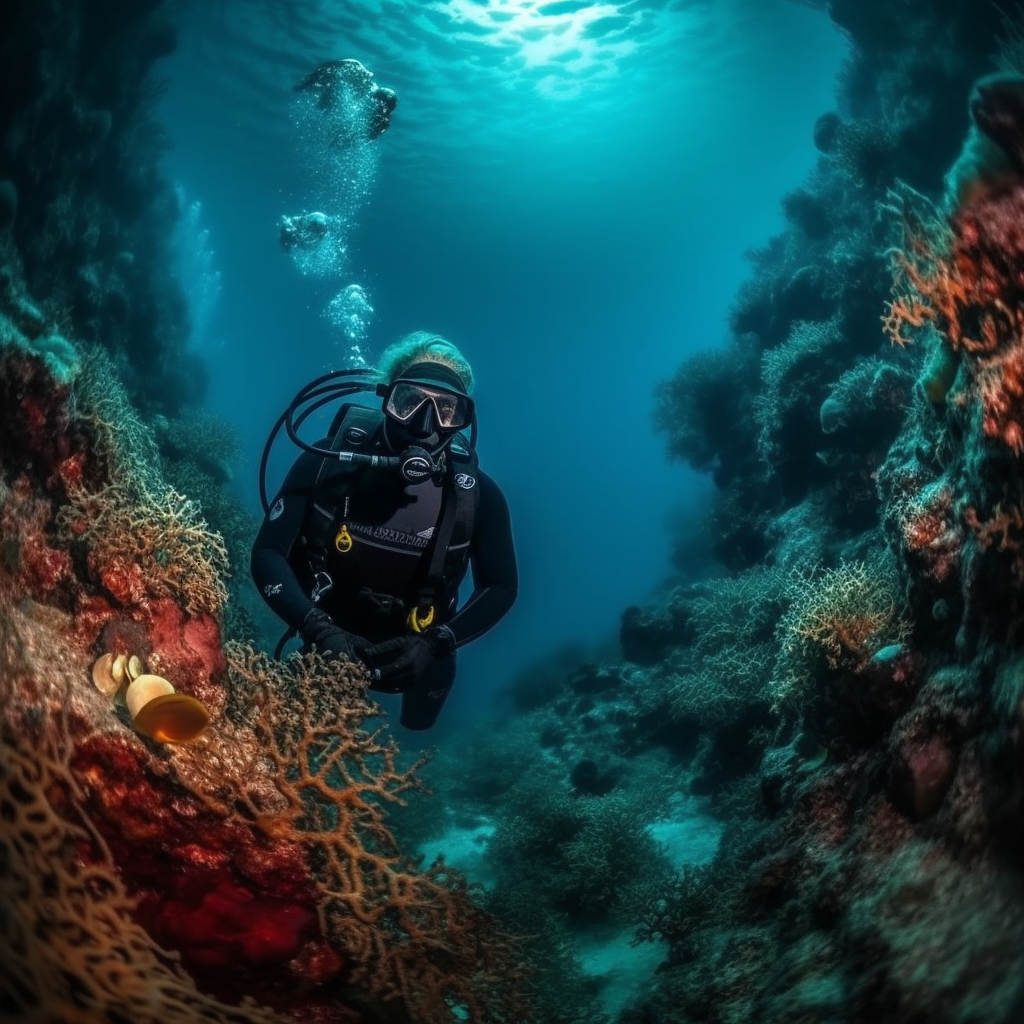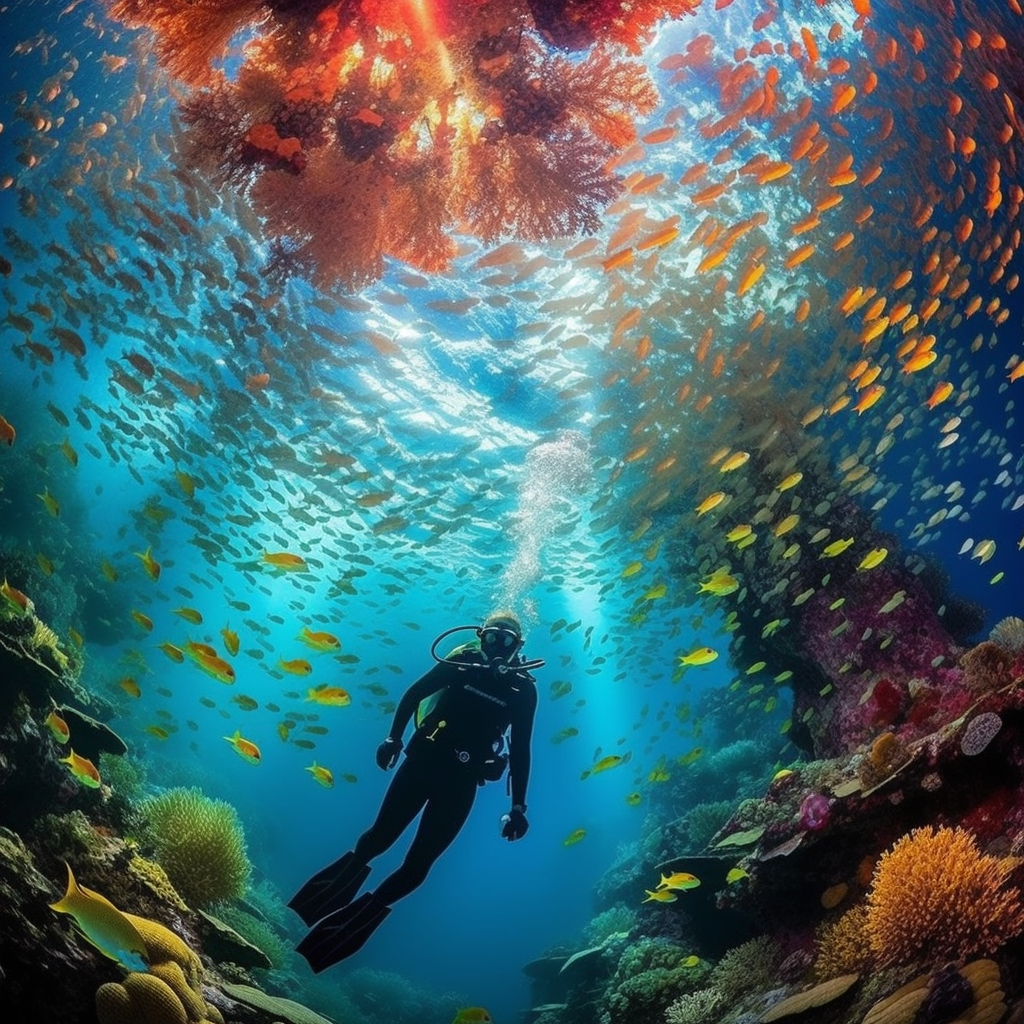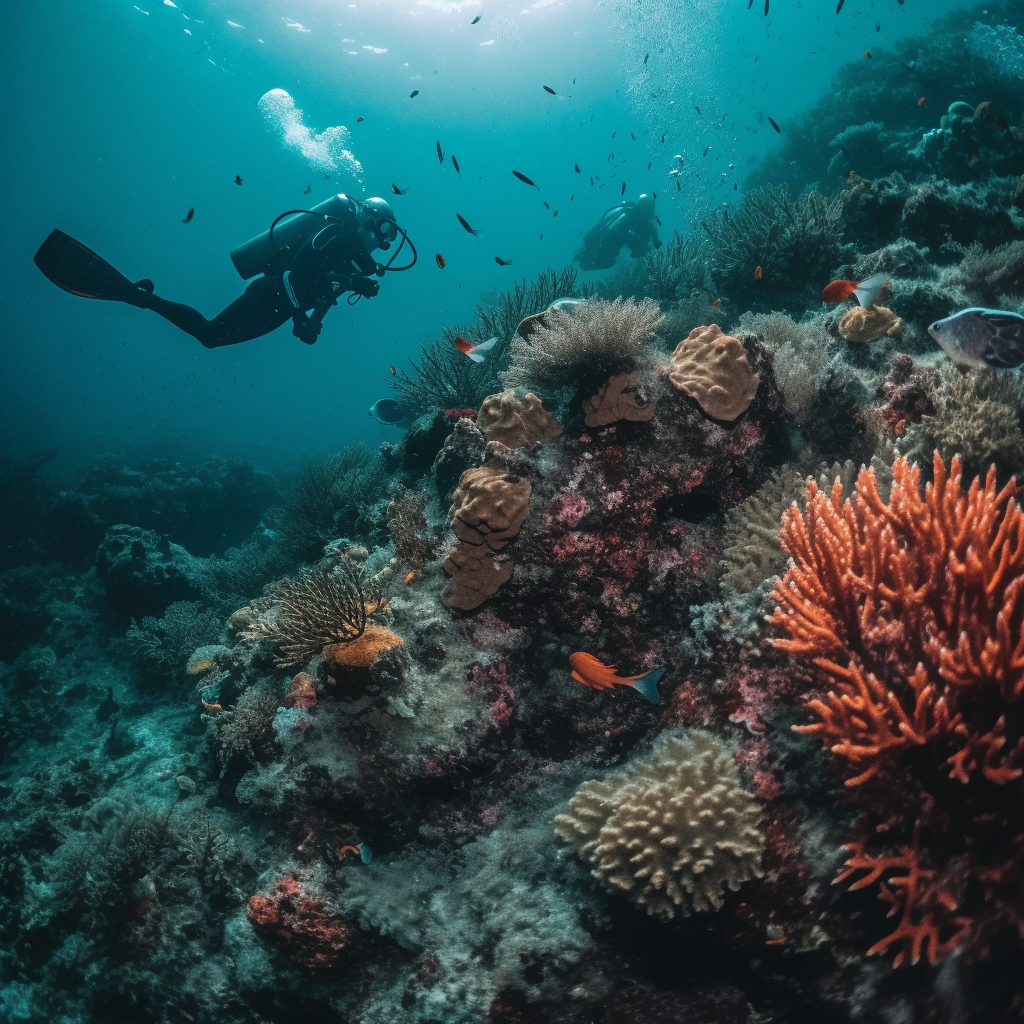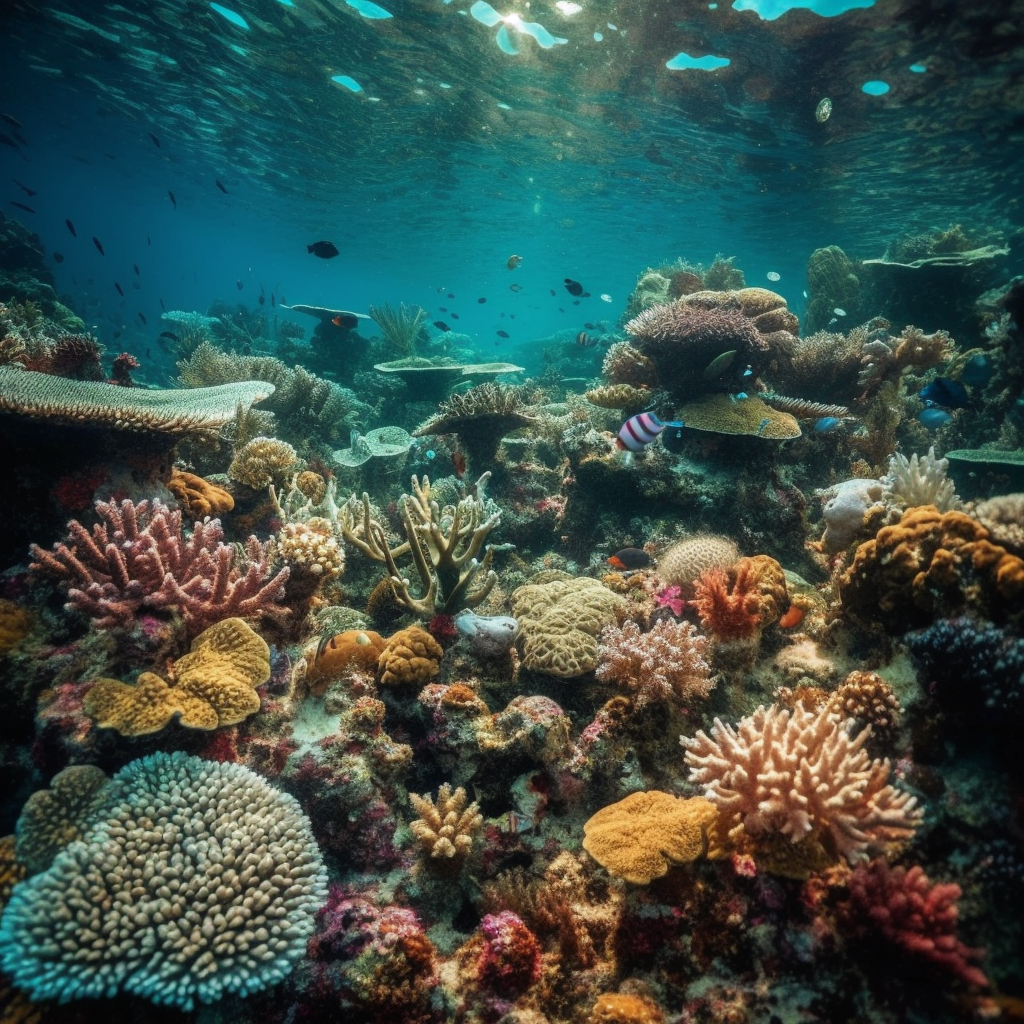Freediving and scuba diving are two popular underwater activities that offer very different experiences. While scuba diving allows divers to explore the depths of the ocean with the help of equipment, freediving relies solely on the diver’s ability to hold their breath.
One of the most significant differences between freediving and scuba diving is the amount of equipment used. Scuba diving requires a lot of gear, including a tank of compressed air, a regulator, fins, and a weight belt, among others. In contrast, freediving requires only a mask, fins, and a wetsuit. This makes freediving a more accessible activity as it requires less equipment and is generally less expensive than scuba diving.
Another difference between the two activities is the level of freedom and mobility that divers have. Scuba divers are limited by the amount of air in their tank and must regularly return to the surface to refill. Freedivers, on the other hand, can stay underwater for extended periods, allowing them to explore deeper and more freely. However, this also means that freedivers must be highly skilled and knowledgeable about their limits to avoid the risk of blackouts or other dangerous situations.
Understanding Freediving
Freediving is a form of underwater diving that involves holding one’s breath while exploring the underwater world. Unlike scuba diving, which requires the use of breathing apparatus, freediving relies on a single breath to explore the depths of the ocean.
Freediving is a popular sport that requires a high level of skill, technique, and physical fitness. It is a challenging and rewarding activity that allows divers to experience the underwater world in a unique way.
To freedive safely, divers must have a good understanding of the techniques and equipment involved. Proper training is essential to develop the mental and physical abilities required to dive deeper and stay underwater for longer periods of time.
Freediving can be done with minimal equipment, such as a mask and fins, or with more advanced gear, such as weights and specialized masks. The choice of equipment depends on the individual’s skill level and the type of diving they plan to do.
One of the benefits of freediving is the freedom of movement it provides. Divers can move more easily and quietly through the water, allowing them to approach marine life more closely and observe them in their natural habitat.
However, freediving also comes with risks, such as lung overexpansion injuries and blackouts. It is important for divers to understand safe ascent rates and to practice relaxation and awareness techniques to avoid panic and other dangerous situations.
Overall, freediving is a challenging and rewarding activity that requires perseverance, determination, and a safe approach to exploring the ocean. With proper training and equipment, divers can experience the underwater world in a way that is unique and unforgettable.
Understanding Scuba Diving
Scuba diving is a popular underwater sport that allows individuals to explore the underwater world for extended periods. It involves using a self-contained underwater breathing apparatus (SCUBA) that supplies divers with compressed air from a tank. Scuba diving is an exciting way to experience the underwater world, but it requires proper training and equipment to ensure safety.
One of the significant differences between scuba diving and freediving is the depth that divers can explore. With scuba diving, divers can explore deeper depths and stay underwater for longer periods. This is because they have a constant supply of air from their tanks, allowing them to breathe comfortably underwater.
Scuba diving requires a lot of equipment, including a mask, fins, regulator, wetsuit, and weights, among others. The equipment is crucial in ensuring safety and comfort underwater. The regulator is the most important piece of equipment as it controls the air supply to the diver.
During scuba diving, divers must practice proper breathing techniques to conserve their air supply and stay underwater longer. They also need to be aware of their surroundings and marine life to ensure their safety and that of the environment.
Scuba diving requires proper training and certification to ensure safety and reduce the risks associated with the sport. Divers must also follow safe ascent rates, no-decompression limits, and safety stops to prevent decompression sickness.
Despite the risks, scuba diving offers numerous benefits, including exploring the ocean, experiencing aquatic life, and a healthier lifestyle. It is an adventure sport that requires perseverance, determination, and mental and physical abilities.
In summary, scuba diving is a popular underwater sport that allows individuals to explore the underwater world for extended periods. It requires proper training, equipment, and awareness to ensure safety. Scuba diving offers numerous benefits and is an adventure sport that requires perseverance, determination, and mental and physical abilities.
Comparing Freediving and Scuba Diving
Freediving and scuba diving are two popular underwater activities that allow people to explore the underwater world. While they share some similarities, they also have significant differences. This section will compare freediving and scuba diving in terms of various factors such as techniques, equipment, safety, and experience.
Techniques
Freediving relies on the ability to hold one’s breath and dive underwater, while scuba diving uses a breathing apparatus to supply air. Freediving requires proper breathing techniques, relaxation, and efficient movement to conserve oxygen. On the other hand, scuba diving involves learning how to use the equipment, managing air supply, and following decompression procedures.
Equipment
Freediving requires minimal equipment, such as a mask, fins, and wetsuit. Scuba diving, on the other hand, requires more equipment, including a regulator, air tank, BCD, weights, and dive computer. Freediving equipment is lightweight and allows for freedom of movement, while scuba gear can be heavy and restrict movement.
Safety
Both freediving and scuba diving carry risks and require proper training and safety measures. Freediving has a higher risk of blackout and lung overexpansion injuries, while scuba diving has a risk of decompression sickness and equipment failure. Both activities require awareness and calm to manage risks and avoid panic.
Experience
Freediving offers a unique experience of exploring the underwater world on a single breath, while scuba diving allows for longer and deeper dives with compressed air. Both activities offer the opportunity to see marine life, wrecks, and explore the ocean. Freediving is a more personal and challenging experience, while scuba diving can be a leisurely adventure.
Similarities
Freediving and scuba diving share some similarities, such as the need for proper training, technique, and safety measures. Both activities require mental and physical abilities, and a healthier lifestyle can improve performance. Both activities offer the opportunity to see aquatic life, explore the ocean, and achieve personal bests.
Differences
The main differences between freediving and scuba diving are the techniques, equipment, safety, and experience. Freediving requires minimal equipment and relies on holding one’s breath, while scuba diving requires more equipment and uses compressed air. Freediving has a higher risk of blackout and lung overexpansion injuries, while scuba diving has a risk of decompression sickness and equipment failure. Freediving offers a more personal and challenging experience, while scuba diving can be a leisurely adventure.
In conclusion, both freediving and scuba diving offer unique experiences and require proper training and safety measures. The choice between the two activities depends on personal preferences, goals, and comfort levels.

